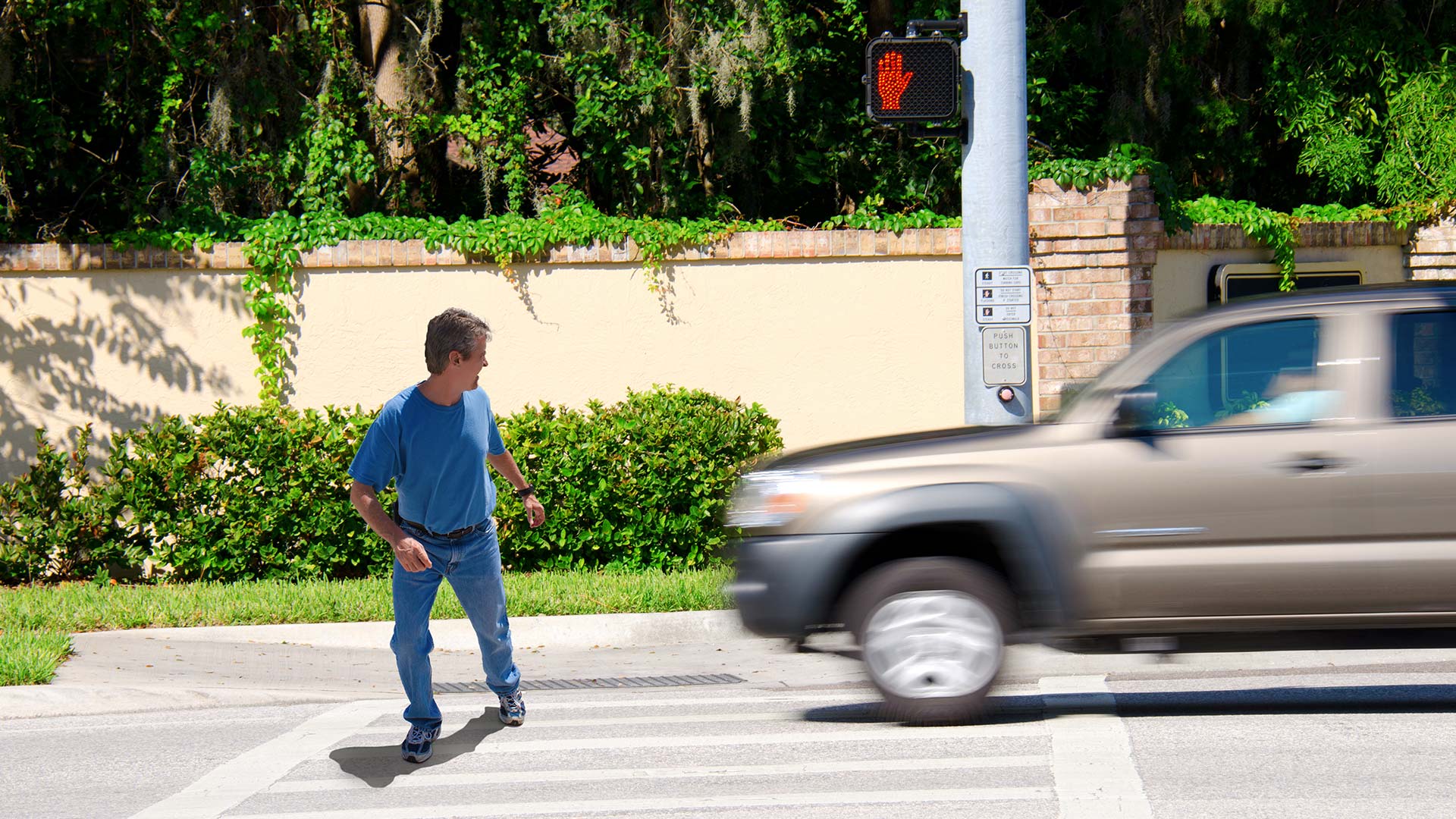[ad_1]

Starting next year, California police officers will no longer be able enforce many jaywalking violations, due to recently passed legislation that decriminalizes the act.
The Freedom to Walk Act, authored by San Francisco Assemblymember Phil Ting, was signed into law by Governor Gavin Newsom on September 30 and will go into effect on January 1, 2023.
According to the law’s supporters, jaywalking citations have unfairly impacted marginalized and low-income residents, particularly people of color. Under the new law, pedestrians will be able to cross the street outside of designated intersections or against traffic lights without risking a citation as long as they are not endangering themselves or others in the process.
“It’s still technically illegal to cross the street in the middle of the street,” Ting told LAist. “But we’re directing law enforcement not to cite people, unless there’s an immediate hazard.”
The bill states that jaywalking should not be cited “unless a reasonably careful person would realize there is an immediate danger of collision with a moving vehicle or other device moving exclusively by human power,” such as a bicycle or scooter.
Jaywalking laws, historically enacted in the 1930s with the rise of automobile usage, are enforced across the country. However, in major cities such as Boston and New York, ticketing is less common.
In California, citations are frequently handed out to individuals who cross the street outside of a marked crosswalk or fail to get to the other side before the countdown signal finishes. And while the state’s base fine for the offense is $25, additional penalties and surcharges bring the total cost of a ticket to nearly $200.
Critics of jaywalking laws argue that they create opportunities for racial profiling and unequitable enforcement. Ting’s office cited data from the California Racial and Identity Profiling Act, which showed that Black Californians were 4.5 times more likely to receive jaywalking citations. According to a press release from Ting’s office, there have also been numerous cases where jaywalking stops have led to fatal police encounters.
Opponents of the law argued that it would make streets less safe at a time when pedestrian fatalities are on the rise, and that the “reasonably careful” criteria is vague and leaves too much to officer discretion.
The bill’s co-author, Assemblymember Laura Friedman of Glendale, argued that citing people for jaywalking is not a deterrent and has little effect on public safety. “If people are jaywalking a lot in an area, it’s probably because they don’t have a good way to get across the street,” she explained to LAist. “I’d rather have communities start thinking about adding more crosswalks, adding better signage, putting a light up, putting up a stop sign, adding a sidewalk — doing all the things that we know actually do make people safer.”
“It should not be a criminal offense to safely cross the street,” Ting stated. “When expensive tickets and unnecessary confrontations with police impact only certain communities, it’s time to reconsider how we use our law enforcement resources and whether our jaywalking laws really do protect pedestrians. Plus, we should be encouraging people to get out of their cars and walk for health and environmental reasons.”
Other states and municipalities that have decriminalized jaywalking include Nevada (which changed it from a misdemeanor to a civil penalty), Virginia (which changed it to a secondary offense, so that officers cannot stop pedestrians solely due to jaywalking) and Kansas City, Missouri (which eliminated jaywalking tickets and penalties).
To measure the impact of the new law on public safety, the Commissioner of the California Highway Patrol (CHP) will work with the Institute of Transportation Studies at the University of California to submit a report detailing pedestrian-related traffic crash data to the California Legislature by January 1, 2028.
[ad_2]




